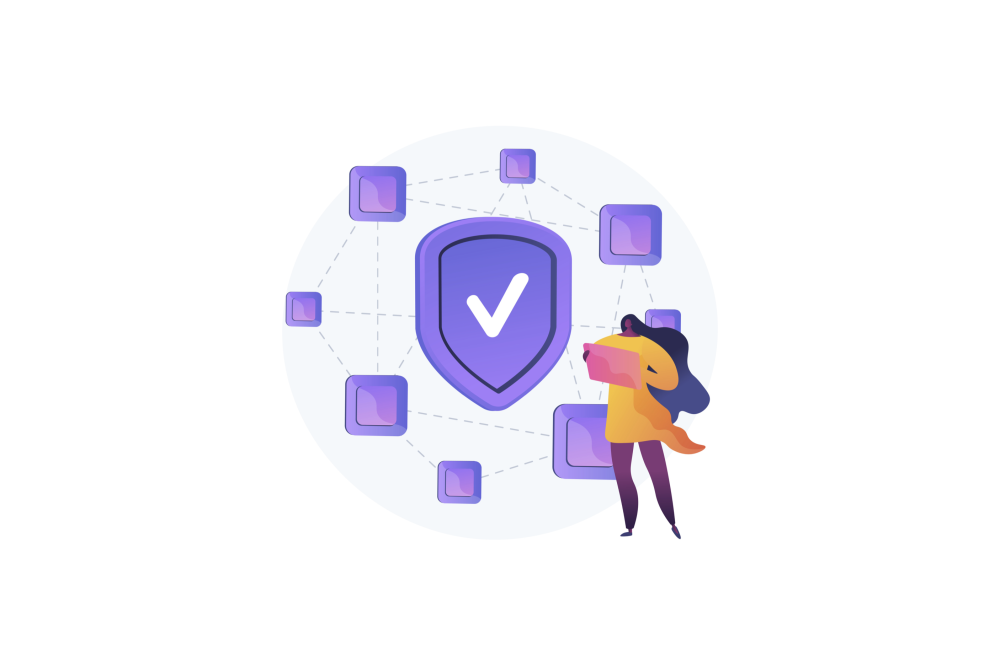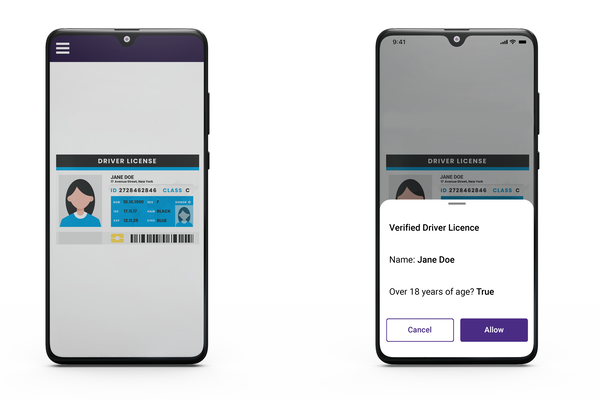Decentralized identity: Keeping YOU in control of your identity Written on

Just last week, we announced a completely new identity for our company. As we move towards a future where individuals have complete control over their digital identity, we felt the need to adapt our brand to represent our vision of a decentralized world, where individuals can securely and privately manage their personal information. Youverse represents the commitment to make you, dear reader, the real owner of your identity. You choose. You lead. You OWN your identity.
We believe that it's time for businesses and organizations to pay attention to this important shift in technology. By embracing decentralized identity protocols, we can help ensure a safer future, where commerce is trustworthy and efficient, and online communities are built on trust.
In this article, we will explore what decentralized identity is, how it works, and why it represents a promising solution for ensuring the privacy and security of digital identities.
From single sign-on to individual ownership
Let's take a look at how we manage our personal information online. Take online shopping for example. If you shop online, you probably have personal information, such as your name, address, and credit card details, stored on numerous websites. This makes future purchases more convenient, obviously, but also poses a risk: the only way you have to protect your personal information is through a combination of username and password. Do you think this is enough to protect your privacy?
A very popular way to authenticate users is through Single Sign-On (SSO). SSO is a technology that enables users to log into multiple applications and services using a single set of credentials — your Google account or LinkedIn profile. While SSO offers the convenience of having to remember only one password, there are several reasons why it may not be the best solution for every user or organization:
It is not secure
First of all, password-based SSO is not a secure way to authenticate users. It centralizes user authentication, meaning that if an attacker gains access to a user's credentials, they will have access to all of the user's applications and services. This can result in a large-scale breach of sensitive information.
You're dependent on a single provider
SSO relies on a single provider (as we said earlier, Google and LinkedIn are a few examples of SSO providers) to handle authentication, which can create a single point of failure. If the SSO provider experiences a service disruption or is hacked, it can disrupt access to all connected applications and services. Moreover, a single provider owns your credentials. That means that, if for some reason they suspend your account, you’ll lose access to all the other applications, websites, and services.
You're not the owner of your data
SSO solutions often collect and store user data and this raises privacy concerns. You may say that the most popular SSO providers are reliable — are they? Do you know how your personal information is being held? Who can see it? And how is it being used? The centralization of personal data in a single provider is a complex and sensitive question.
SSO can be a convenient solution for certain users and organizations, but it is important to understand that, when you’re relying on an SSO provider, you’re vulnerable to data breaches, weak passwords, phishing attacks, and other forms of fraud and theft.
More than that, you’re not owning your digital identity. Decentralized identity offers a new way of managing personal information that is more secure and puts the individual in control.
Putting you in control of your identity
The rise of decentralized identity is closely tied to the development of web3. This new generation of the internet aims to be more open and user-centric. In the concept of web3, individuals would have full control over their personal data, and organizations and service providers would need their permission to access and use it.
With decentralized identity, the personal information of an individual is managed and stored in a way that eliminates the central authority's control over it. Links to verifiable credentials about the user information are registered on a distributed ledger, which enhances its security and protects it from tampering or unauthorized access. This decentralized approach to identity management offers a more secure solution compared to traditional methods controlled by a single entity.;
This gives users the power to manage their own personal information in a new way. Decentralized identity empowers individuals with a secure, private alternative to prove claims about themselves and access everyday websites and applications, from a bank account to a crypto wallet.
Rather than disclosing full access to all the information on your ID, for example, you can opt to only show the information that’s relevant to a specific context. For example, if you're showing your driver’s license to rent a car, the company just needs to know that you're authorized to drive the type of vehicle you want to rent in that particular country.

Unlike the current identity paradigm, decentralized identity enables user-centric identity management, eliminating the need for centralized databases. Identity is not owned by organizations — users have full control over their data and information disclosure.
One step further and we can visualize decentralized digital wallets that allow us to access every application, website, or service without having to remember passwords and usernames — or to rely on SSO providers. The so-called self-custodial wallets allow individuals to collect and manage their credentials and companies to receive pre-verified KYC data and verify the customer’s identity.
What decentralized identity means for organizations
Moving the focus from people to organizations: what are the benefits of decentralized identity for businesses? The first thing that comes to mind is that, by eliminating the burden of user authentication and identity verification, businesses no longer have to worry about data breaches or the security of their customers’ information. Then, obviously, comes the saving part: it surely can help businesses save on costs related to identity verification, as the need for third-party verification is reduced.
But there are several other benefits for businesses who opt to take a decentralized approach to customers' identities:
Improved user experience
Decentralized identities can make it easier for users to manage their personal information, reducing friction in online transactions and improving the overall user experience.
Increased trust
Decentralized identities can help build trust between businesses and customers, as customers have greater control and transparency over their personal data.
Compliance with privacy regulations
Decentralized identities can help businesses comply with privacy regulations such as the European Union's General Data Protection Regulation (GDPR).
What the future holds
The outlook for decentralized identity is very promising. We can expect to see decentralized identity become more widely adopted, particularly in industries such as finance and hospitality, where secure and privacy-preserving identity verification is of utmost importance.
By embracing this technology, companies and organizations can ensure that their users' data is protected and that they remain compliant with privacy regulations. With the numerous benefits that decentralized identities bring, it is imperative for companies and organizations to start exploring this technology and find ways to integrate it into their operations.
If you're interested in learning more about decentralized identities, we encourage you to check out our newly launched website and discover how it relates to your specific industry.






